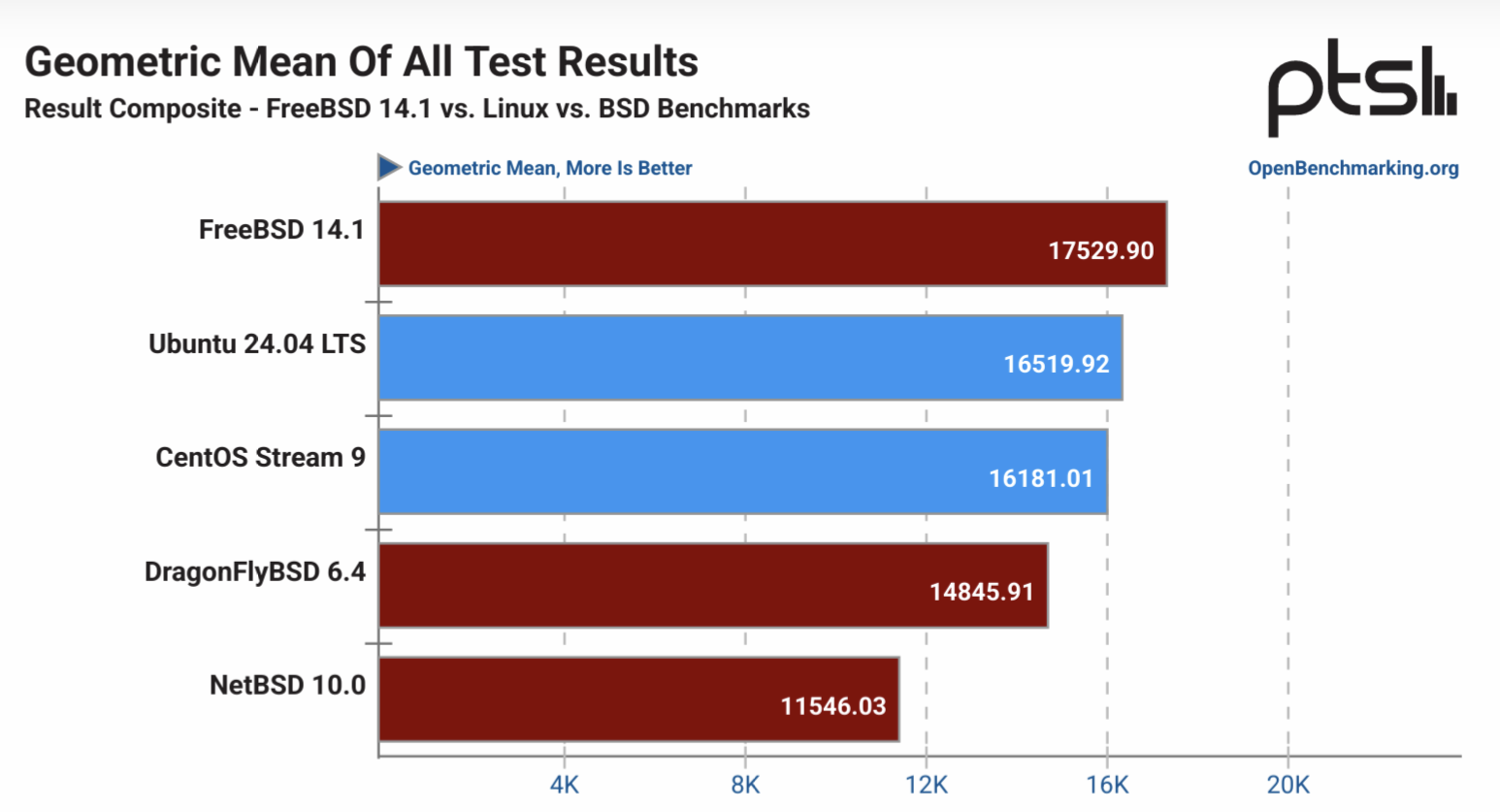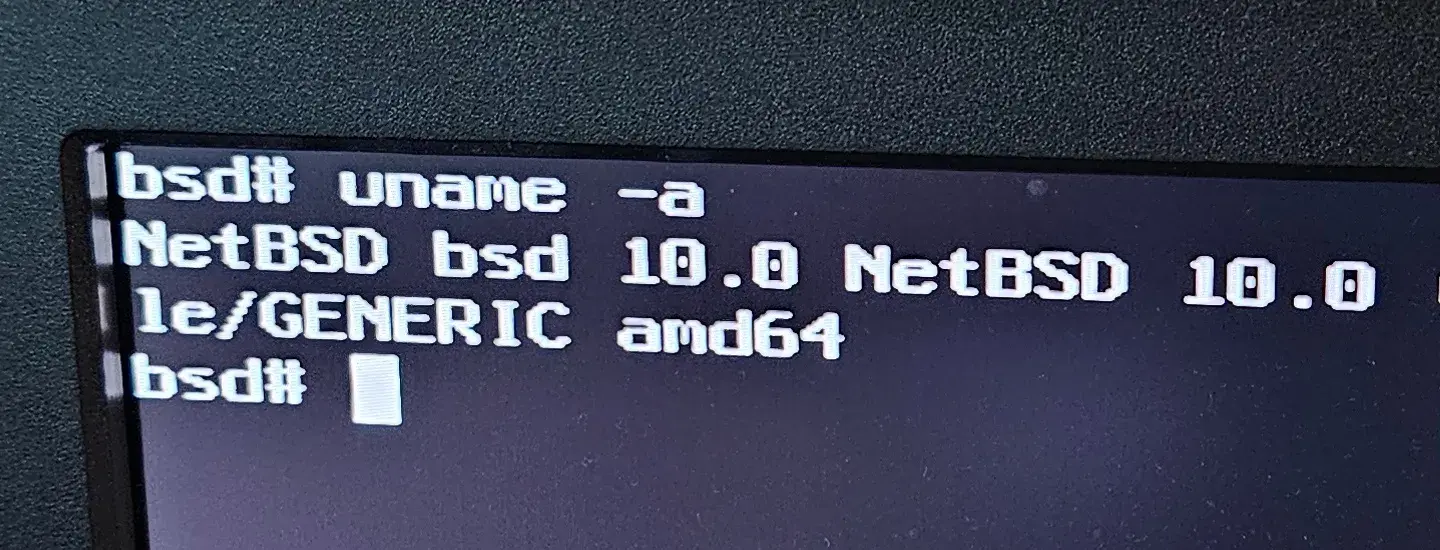Here is the summary paragraph.
FreeBSD 14.1 overall was the best BSD performer among the BSDs tested on this AMD Ryzen Threadripper workstation from System76. FreeBSD was doing well in both the kernel micro-benchmarks as well as in a variety of other workloads tested. It was refreshing to see how well the new FreeBSD 14.1 was performing and competing with the likes of Ubuntu 24.04 LTS and CentOS Stream 9. Those wishing to see even more benchmarks form this Threadripper 7980X BSD/Linux comparison can do so via this result page.
And here is a Geometric Mean Of All Test Results.

Overall, I’m surprised at how well Ubuntu preformed.
This is the best summary I could come up with:
After last week looking at how FreeBSD 14.1 has improved performance over FreeBSD 14.0, here is an expanded cross-OS comparison now looking at how the new FreeBSD 14.1 stable release compares to the recently released NetBSD 10.0, the current DragonFlyBSD 6.4 release, and then CentOS Stream 9 and Ubuntu 24.04 LTS for some Linux comparison data points.
This round of benchmarking has a look at FreeBSD 14.1, DragonFlyBSD 6.4, NetBSD 10.0, CentOS Stream 9, and Ubuntu 24.04 LTS.
OpenBSD 7.5 booted fine from USB for installation but when it came to post-installation use when booting the installed system the display wouldn’t work nor was there any network connectivity and thus no ability to SSH into the system.
The same system hardware was used throughout all of the testing and was a System76 Thelio Major powered by an AMD Ryzen Threadripper 7980X.
This system was powered by the 64-core Zen 4 Threadripper 7980X, 128GB (4 x 32GB DDR5-4800) memory, 1TB Crucial NVMe SSD, and Radeon PRO W7900 graphics.
Each Linux and BSD operating system was cleanly installed and then tested the out-of-the-box performance in a variety of Linux/BSD-compatible tests, including the default compiler on each platform and other default packages.
The original article contains 253 words, the summary contains 199 words. Saved 21%. I’m a bot and I’m open source!
Can anyone explain why there is such a huge difference in some of the benchmarks: Poll, Forking, CPU Cache, Semaphores, Socket Activity, Context Switching (all Stress-NG). Can we really trust these tests?


